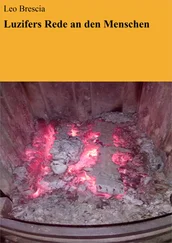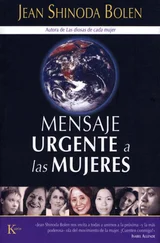Jean Rouaud - Of Illustrious Men
Здесь есть возможность читать онлайн «Jean Rouaud - Of Illustrious Men» весь текст электронной книги совершенно бесплатно (целиком полную версию без сокращений). В некоторых случаях можно слушать аудио, скачать через торрент в формате fb2 и присутствует краткое содержание. Год выпуска: 2011, Издательство: Arcade Publishing, Жанр: Современная проза, на английском языке. Описание произведения, (предисловие) а так же отзывы посетителей доступны на портале библиотеки ЛибКат.
- Название:Of Illustrious Men
- Автор:
- Издательство:Arcade Publishing
- Жанр:
- Год:2011
- ISBN:нет данных
- Рейтинг книги:4 / 5. Голосов: 1
-
Избранное:Добавить в избранное
- Отзывы:
-
Ваша оценка:
- 80
- 1
- 2
- 3
- 4
- 5
Of Illustrious Men: краткое содержание, описание и аннотация
Предлагаем к чтению аннотацию, описание, краткое содержание или предисловие (зависит от того, что написал сам автор книги «Of Illustrious Men»). Если вы не нашли необходимую информацию о книге — напишите в комментариях, мы постараемся отыскать её.
Of Illustrious Men — читать онлайн бесплатно полную книгу (весь текст) целиком
Ниже представлен текст книги, разбитый по страницам. Система сохранения места последней прочитанной страницы, позволяет с удобством читать онлайн бесплатно книгу «Of Illustrious Men», без необходимости каждый раз заново искать на чём Вы остановились. Поставьте закладку, и сможете в любой момент перейти на страницу, на которой закончили чтение.
Интервал:
Закладка:
The Riancé tailor was made welcome at the castle. All he was required to do was turn up with his professional expertise and his sewing kit, because the Count had his suit fabric specially sent from the Shetland Islands. This greatly impressed Alphonse Burgaud, whose apprentice years with Paris couturiers had taught him to appreciate fine cloth and light, comfortable materials, such as a particular cashmere overcoat whose virtues he demonstrated by feeling its weight with his little finger. Taking for granted the Count’s affinities with the British, he had at first intended to inform him that his tenant farmers might perhaps soon be called upon to harbor a defaulter from the forced labor system. But after the Count had made a few disagreeable remarks about a certain French general who broadcast on the English radio (though in fact the Count’s only objection to him was that his name had a “de” in it yet he in no way belonged to the nobility), Alphonse Burgaud had thought it wiser to say nothing and to keep his own counsel.
And that was why, a few weeks later, the Count was surprised to come across a strange-looking cowherd on his land, a cowherd sporting a tight jacket and black corduroy trousers much too short for someone of his height, trying to keep his feet in his wooden shoes as he walked with the herd, an open book in his left hand, which from time to time he stopped reading to give a lazy cow a little tap on the rump with his switch. For the young man had accepted the farmers’ generous offer on condition that he would be allowed to work for them as a simple farm laborer. He got up at dawn to do the milking, which he said is much more of a skilled job than it seems. It isn’t enough to tug at the poor animal’s udders, pretending to be a bellringer, if you want the jet of hissing, creamy milk to come gushing down in great bubbles against the metal sides of the pail, its warm steam misting up the milker’s glasses as it descends. He had worked for a long time to master the alternate movement, right hand, left hand, the calculated pressure of the fingers, the thumb and forefinger ringed round the teat so as to function like a valve and contain the flow of the milk before expressing it. This apprenticeship, under the critical and amused eye of the farmer, had not been without the odd mishap. For it is a risky maneuver. When the animal realizes she’s in the hands of a clumsy incompetent, she will manifest her displeasure by flicking her tail — usually far from clean — in the face of her torturer, unless she suddenly skips sideways and knocks him — and his pail with him — over backward into the manure. With his cheek flattened against the animal’s flank, precariously balanced on the three-legged stool that was far too low for his height, it was difficult for him to accommodate his long legs on either side of her distended belly, so that as soon as he was allowed to do the milking on his own, he invented the idea of tying up the cow’s tail and muffling his head in a jute sack, and didn’t hesitate to adopt unorthodox positions, such as sitting sidesaddle, to avoid a kick from a bad-tempered beast, a bluish memento of which he still bore on his tibia.
From the spring sowing to the autumn plowing, he followed the complete cycle of the work of the farm laborer. He harrowed, scythed, harvested, sheafed the corn, garnered, hoed, weeded, paid special attention to the few tobacco plants intended for domestic use, and even took to pipe smoking, which he didn’t like because the smoke went cold in the stem. He wielded the fork and the spade, mucked out the cow shed, filled the wheelbarrow with straw for the animals’ litters, chopped the wood, held the pig down firmly while the farmer slaughtered it, almost passed out at the sight of its spurting blood, asked no more than to be excused from stable duty and from looking after the two heavy cart horses after one of them nearly amputated his finger while he was trying to put the bit between its teeth. (Years later, linking this episode to the memory of his father, he confessed that he would have made a deplorable dragoon.) The rest of his time he spent in being bored, reading, doing odd jobs, putting up shelves, repairing the handle of a plow, and sometimes disappeared for days on end when there wasn’t enough work to make his presence indispensable. On some evenings he got on his bicycle and announced that he’d be back at dawn in time for the milking, and in fact they found him at his post, having barely taken the time to change his clothes, as if nothing had happened. His behavior never gave his hosts any clue to his secret activities, and anyway, rather than look for complications, wasn’t it simpler to imagine there was a girl involved? After all, that was only natural at his age, and for a virile young man this cloistered life was no life at all. But he didn’t give them the slightest hint, except on one occasion, after he’d been away for several days, when the farmer’s wife who was sweeping out the yard saw him return, throw himself off his bike, rush into his room, and immediately start burning some papers in the fireplace and later go and scatter the charred remains on the compost heap. As it was getting close to noon, the only words he spoke were to say he didn’t want any lunch because he wasn’t hungry, and then he went up to his room. A little later, the farmer’s wife, worried that he’s so silent, knocks on his door to offer him a cup of so-called coffee, a revolting liquid made from roasted barley, and, getting no answer, feels justified in going into his room, which is that of her son who’s a prisoner in Germany. She finds it empty, the window wide open on the sounds of the summer and the green mass of the trees, and is only half surprised because she knows he is in the habit of climbing over the rail so as not to disturb them when he comes back from his nocturnal expeditions; then she catches sight of him lying under a tree at the edge of the forest, his head in his folded arms, a cigarette burning itself out between his fingers.
It had depended on a mere nothing — lazy pedaling, an overlong detour, a few minutes trying to find the meeting place, but without that saving delay he would have been with his comrade Michel Christophe, who had been arrested almost under his very eyes, shoved into a car, driven to Nantes, tortured at the Kommandantur — headquarters — imprisoned, and then deported to Buchenwald. When he came back after the war was over he was so terribly thin — almost as if he had no skin covering his head and bones — that when his mother met him on the station platform she didn’t want to throw her arms around her poor son’s body for fear of reducing him to dust, as sometimes happens to mummies that are handled without due care when ancient tombs are opened. “Is it really you?” she asked, not to convince herself that it really was he — even mutilated or disfigured, how could she not recognize this part of herself? — but the way people marvel at the metamorphosis of someone they know well: Is it really you? — we didn’t know you were capable of such an extraordinary feat: Is it really you? — walking that lethal high wire? And day after day she fed him like a child with purees and minced meat, respecting his silence. And when he began to regain his strength, when his gaze began to seem less remote, he started to tell her about the suffering of the body: hunger, lice, vermin, dysentery, cold, fever. But how was it possible to explain that particular kind of hunger to people who in return talked about their own hardships; to describe the kind of itching that made you scratch until you drew blood and nearly went mad to people who complained that soap was a rare commodity and never lathered, or that kind of cold to people who had shivered for four winters, or that kind of fever to people who had piled blankets and eiderdowns on top of themselves? So he kept the rest to himself, and it was only very much later that he confided to his friend Joseph something he had witnessed and had been tormenting him day and night ever since his return: five hundred little gypsy children, aged between five and twelve, had been executed by lethal injections, one after the other, lying on a table unable to move while a pseudo-surgeon, a lift attendant in civilian life, stuck a long needle into their hearts, filling them with a yellowish poison that caused instant death. And his friend Joseph, remembering how slowly he had ridden his bicycle, and the stroke of luck by which he had avoided sharing the same fate, refrained from asking him whether he had been one of the men who had held the little martyrs down by force.
Читать дальшеИнтервал:
Закладка:
Похожие книги на «Of Illustrious Men»
Представляем Вашему вниманию похожие книги на «Of Illustrious Men» списком для выбора. Мы отобрали схожую по названию и смыслу литературу в надежде предоставить читателям больше вариантов отыскать новые, интересные, ещё непрочитанные произведения.
Обсуждение, отзывы о книге «Of Illustrious Men» и просто собственные мнения читателей. Оставьте ваши комментарии, напишите, что Вы думаете о произведении, его смысле или главных героях. Укажите что конкретно понравилось, а что нет, и почему Вы так считаете.












